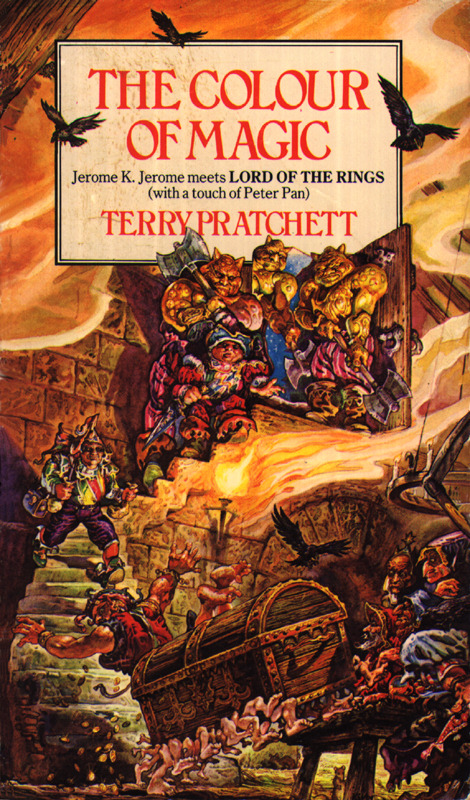 I think one of my first posts on this blog was an Anne Rice book and funnily enough, reading through the Anne Rice's series was what made me want to start a book review blog in the first place. Anne Rice's style of writing has changed over the years, which is natural, but Anne Rice's quality of work has definitely been up and down over the years as well. The first three books of the Vampire Chronicles are most notably the top of the line, and then we have Memnoch the Devil and the Vampire Armand, which both were the biggest waste of time and space.
I think one of my first posts on this blog was an Anne Rice book and funnily enough, reading through the Anne Rice's series was what made me want to start a book review blog in the first place. Anne Rice's style of writing has changed over the years, which is natural, but Anne Rice's quality of work has definitely been up and down over the years as well. The first three books of the Vampire Chronicles are most notably the top of the line, and then we have Memnoch the Devil and the Vampire Armand, which both were the biggest waste of time and space.It's interesting when I read her books in quick succession, and how her real life, and her pursuit of God and spirituality, impacted her writing and her viewpoints. Vittorio the Vampire is all about spirituality and religion, and the existence of Angels, God and how it factors into humanity and the meaning of humanity. She draws a very clear line from her fantasy series novel (in which she also tackles humanity, but in the context of the supernatural) to when she really starts to delve into Catholicism.
Anne Rice announced in early 2000s that she was done writing Vampire Chronicles novels and that she had no more stories to tell with either the Mayfair Witches or the vampires of the Vampire Chronicles. She wanted to focus on writing Christian literature and Rice did, producing 4 books centering around Catholic and Christian stories and figures. When I read her books in quick succession, it was very apparent her interests towards Christian Literature and Spirituality.
Of course, her fans called it when those books didn't sell very well, and she was back at it, writing fantasy about Werewolves. I haven't read those books yet, but you all know I'm going to try and find them at the Book fair next weekend. One reviewer titled it, "Vintage Rice" which leads me to the review of the Prince Lestat, a book I found at the library.
I glanced at some of the reviews on Goodreads, and man, a lot of people either hated the book or loved the book. I was under the impression that she had a good editor (I'll get to that in a moment), but many have said that her first draft is her only draft, and that her fans will buy and read the book regardless.
I don't know if that's true. One issue that many critics had was that she had a timeline, and a glossary at the beginning of the book to inform new readers the backstory of the Vampire Chronicles. From what I remember, she never did that before, and many of the "glossary" terms she used were never used before in any of her other books. Having different names for certain things wasn't always Anne's style, which makes me believe that she worked with someone to produce something like that.
Many critics also stated how nothing happens in the book, that everything was resolved really neatly, and that the vampires behaved like a bunch of old people. I can definitely see all of that. However, I think there are way worst books in the series than this one.
I rank my top Anne Rice Books (I'm not going to include the Mayfair Witches, just the crossovers) as follows:
- Queen of the Damned
- Interview with the Vampire
- Vampire Lestat
- The Body Thief
- Blood Canticle
- Prince Lestat
So, it's in the middle in terms of books to read. I wouldn't even waste my time reading Memnoch the Devil, The Vampire Armand, or Blood and Gold. Other than thinking that Rice lost the chance of exploring another family branch of the Mayfairs by killing Merrick off, I don't really remember much about the Merrick novel to have an opinion on it one way or another.
Do I feel like Lestat is a Gary Stu? Absolutely. Did it take me a bit to get through? Well, yes. I found myself falling asleep while reading this novel, but since I read before going to bed anyway, I didn't find this as a bad thing.
However, Rice introduced some new characters, offered some perspective on her vampire mythology that she hadn't explored before, and overall, I thought it was an interesting plot and path to take. Now that Lestat is the most powerful being in the world by the end of the book (which, in any other book series, I would call a spoiler, but the reader guessed what's going to happen as soon as The Voice appears), what will his next move be? What will her next book look like?
The book didn't offend me, but I'm glad that I read it, instead of listening to the audio. When books don't have a quick paced sequence of events where something is happening, or someone is not talking in plain speech, it can get brutal, and I think I would have hated the book if I checked out the audiobook.
So, if you spot it at the library, need a book to read before going to bed, and you liked early Anne Rice, then give Prince Lestat a shot.




